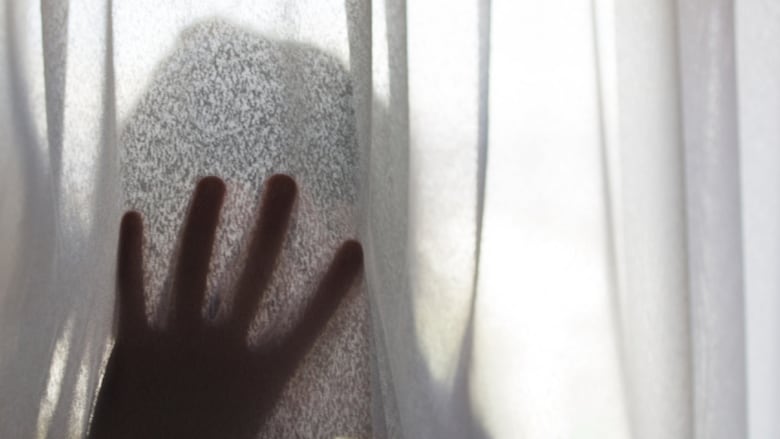'Walls are closing in': Toronto abuse survivor faces new threat from soaring rent
Advocates say better funding for transitional housing needed for victims seeking escape

Just over a year after fleeing a rental she shared with her abusive ex-partner, Elizabeth has launched yet another desperate search for a Toronto apartment.
Elizabeth is a pseudonym; CBC Toronto has agreed not to name her due to safety concerns. The single mom of two has been living in a one-bedroom apartment in the Beach neighbourhood, where her living room doubles as her bedroom to make space for her growing children.
The 39-year-old says she remembers feeling free and hopeful when she found her current apartment, even though at $2,300 per month it was more than she wanted to spend.
Following years of abuse, she kept her search secret from her ex because she worried about how he might react.. Moving into her new, smaller place gave her the space she needed to start over while maintaining some semblance of normalcy for her children. But now her landlord says he's selling the unit and she'll need to go somewhere else once it's sold.
"I feel like the walls are closing in on me. It's taking a toll on my children, I can see it," she told CBC Toronto.

Elizabeth's story isn't uncommon in Toronto, according to organizations that support women fleeing abusive relationships. With rent reaching record highs, the groups worry that more women — and men, to a lesser degree — will stay in violent situations.
Gender-based, intimate partner violence is so bad that the City of Toronto declared it an epidemic earlier this year.
Elizabeth says she's sharing her story because there are others like her who feel trapped not knowing how they'll escape what she describes as a "narrow and unsustainable life." Even though she makes more than the average Canadian and has strong family support, at this point, she says, she's "scraping by."
According to a report released last month by rentals.ca, the average asking rents in Toronto's averaged $2,898 — far more than what she says she can afford.
More housing support for victims needed: advocates
Deepa Mattoo is executive director at the Barbra Schlifer Commemorative Clinic in Toronto, which offers counselling and legal services to survivors of domestic violence.
"The lethality is at its peak because that's when the abuser has lost all control," said Mattoo.
But Mattoo says a shift in the way society views housing specifically for survivors of domestic abuse is paramount. She says the current approach to housing simply doesn't meet their long-term needs.
"I think definitely there needs to be more housing — there needs to be more resources given to the emergency housing, there needs to be more resources given to transition housing," she said.
Michelle Choe, a lawyer working with Advocacy Centre for Tenants Ontario is leading research on how to close the accessibility gap for victims of gender-based violence who need immediate housing.
"Sixty per cent of violence occurs after the end of a relationship," said Choe. "When that relationship breakdown happens, there's a rise in the risk of violence from the ex partner and femicide as well," she said.
More direct financial support would help: advocate
Governments have recognized this risk. The 2023-24 federal budget includes $268 million in spending for a national action plan aimed at eradicating gender-based violence.

CBC Toronto reached out to Minister of Housing and Municipal Affairs Paul Calandra's office for comment, they responded by re-stating their current three year commitment to supporting survivors of domestic violence and human trafficking by increasing access to safe and affordable housing.
However, these provincial programs are shared with victims of human trafficking and critics say they don't guarantee immediate housing to victims fleeing abuse. Choe says there needs to be a synthesized approach to help women facing new legal challenges while facing the daunting and expensive task of securing safe long-term housing in the GTA, including more direct financial support.
"While somebody can move and leave, there's nothing to really cover that long-term stability for somebody experiencing gender-based violence and just the impact financially it has on somebody. Without solutions to create long-term stabilized housing or to protect people's rights when they are experiencing gender based violence, we will continue to see a rise in homelessness." said Choe.
Meanwhile, Elizabeth says she isn't feeling particularly hopeful when it comes to making sure survivors get what they need to leave safely and start to heal.
"I don't know how it's going to be changed on a government level, but the more we talk about it and the more people understand it, hopefully, the more pressure that will put on the powers that be to do something about it," she said.

